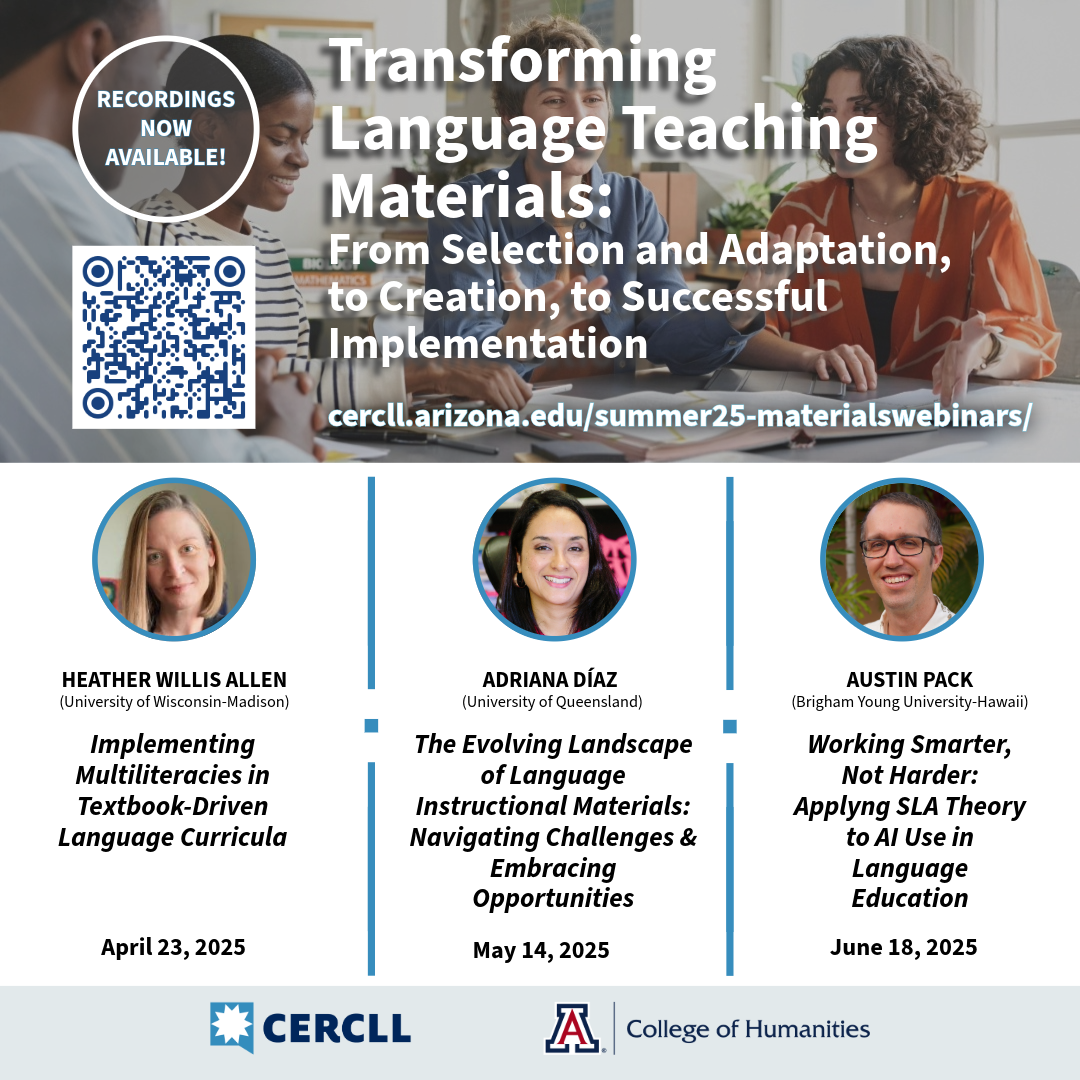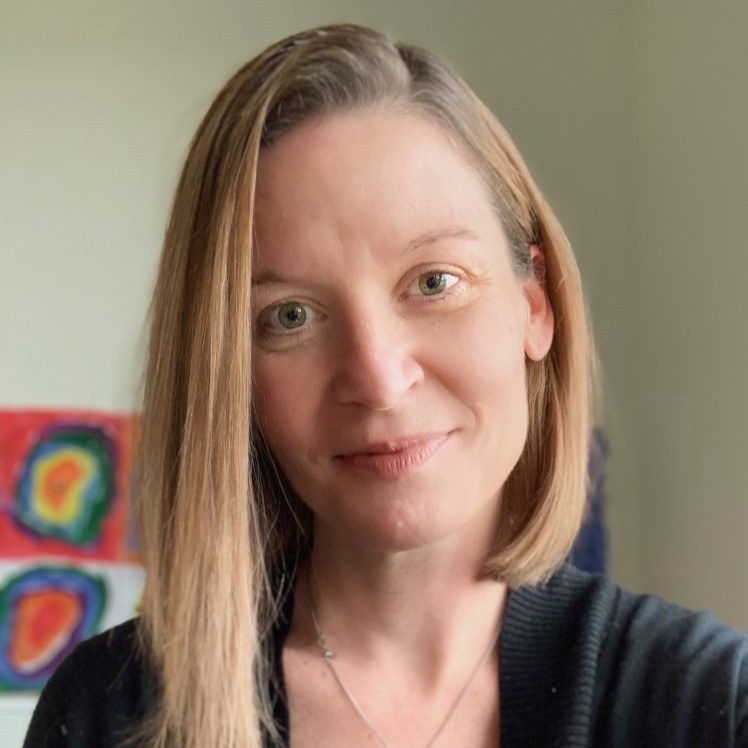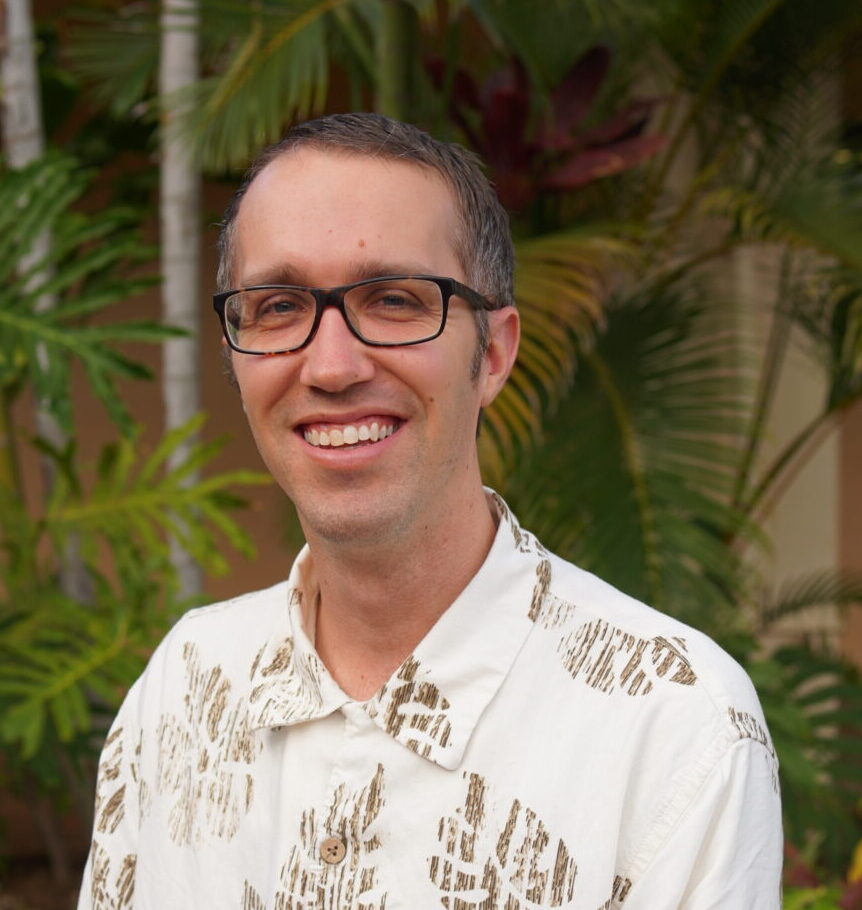
Transforming Language Teaching Materials: From Selection and Adaptation, to Creation, to Successful Implementation
Language teaching and learning materials encompass a rich spectrum of resources—from traditional textbooks and teacher/student-generated content to digital applications, and authentic realia—serving as foundational elements in language programs and classrooms worldwide. These materials bridge the gap between theoretical pedagogical approaches and practical classroom implementation, while providing essential structure to the learning experience. The effectiveness of these resources, however, hinges critically on language educators’ ability to thoughtfully select, adapt, and implement them in ways that align with specific learning outcomes and address diverse student needs within their unique teaching contexts. This crucial intersection of materials and pedagogical expertise will be explored throughout our webinar series, with each speaker offering distinct insights and perspectives. Watch the webinars below to learn how to incorporate these into your language teaching.
Click on the titles below to access the recordings, slides and resources for the webinars in this series.
You can also view all the recordings in our YouTube webinar playlist!

Heather Willis Allen
(University of Wisconsin-Madison)
Implementing Multiliteracies in Textbook-Driven Language Curricula
In this interactive webinar, you’ll discover practical strategies to balance commercial textbook use with innovative activities that foster deeper cultural connections and meaningful language acquisition. Dr. Allen will share concrete examples from an intermediate French course that you can adapt to your own teaching context.
What you’ll take away:
- Fresh perspectives on evaluating textbook strengths and limitations
- Effective techniques for integrating cultural literacy as a multidimensional goal
- Practical resources aligned with multiliteracies pedagogy
- Sustainable approaches to course design that won’t leave you exhausted
- Actionable ideas for helping your students engage in authentic “Meaning Design”
Whether you teach at the K-12 or collegiate level, this session offers valuable insights for language educators looking to create more engaging and culturally rich learning experiences while maintaining instructional sustainability.
The Q&A sessions were great in terms of hearing similar situations other teachers are dealing with and, needless to say, making it interactive.
It expanded my perspective on the importance of the multiliteracies in second language teaching and reminded me that L2 textbooks shouldn’t focus only on grammar or vocabulary.

Adriana Diaz
(University of Queensland)
The Evolving Landscape of Language Instructional Materials: Navigating Challenges and Embracing Opportunities
In this webinar, participants will:
- unpack three urgent and interconnected challenges – accessibility, inclusivity, and authenticity – through the lenses of social justice, critical pedagogy, and decolonial theory, while also exploring the opportunities they offer for more equitable teaching;
- focus on Open Educational Resources (OERs) as sustainable solutions that promote equitable access, dismantle normativities, amplify diverse voices, and empower educators to critically engage with content;
- explore real-world examples of OERs that challenge normative frameworks, encourage learner agency, and foster critical multilingual awareness;
- engage with practical strategies for educators seeking to make more intentional, justice-oriented choices when selecting, adapting, and creating instructional materials;
- leave with concrete ideas for integrating more inclusive and critically engaged materials into their own teaching contexts.

Austin Pack
(Brigham Young University - Hawai'i)
Working Smarter, Not Harder: Applying SLA Theory to AI Use in Language Education
Attendees will leave this webinar with concrete strategies for prompt-engineering, practical applications for their classrooms, and a clearer understanding of the potential role of AI in augmenting language education. This webinar is geared toward all language educators, regardless of their experience in using generative AI.
This webinar is very timely, especially in the current age and time where AI seems to be permeating through almost all aspects of human life, including education, language teaching and research. I enjoyed the practical hands-on activity and his sharing of resources to help attendees further.
Great ideas about prompt generation for teachers to use, will definitely be using these as I develop more activities for my classes.
Austin’s website and extensive research on the topic is incredible. I am subscribed to the newsletter and look forward to learn more about AI form the research perspective as well as use of new AI tools.

